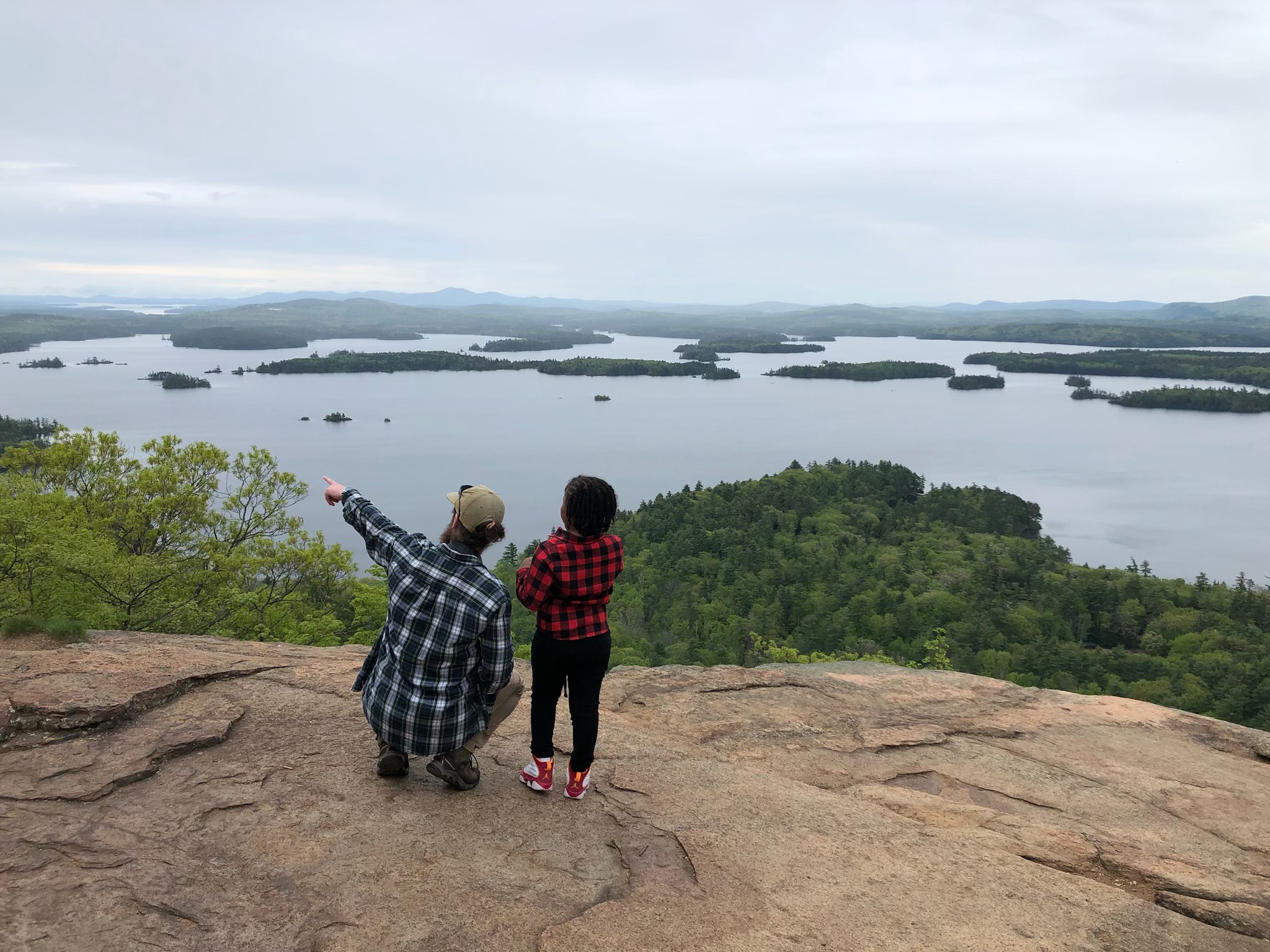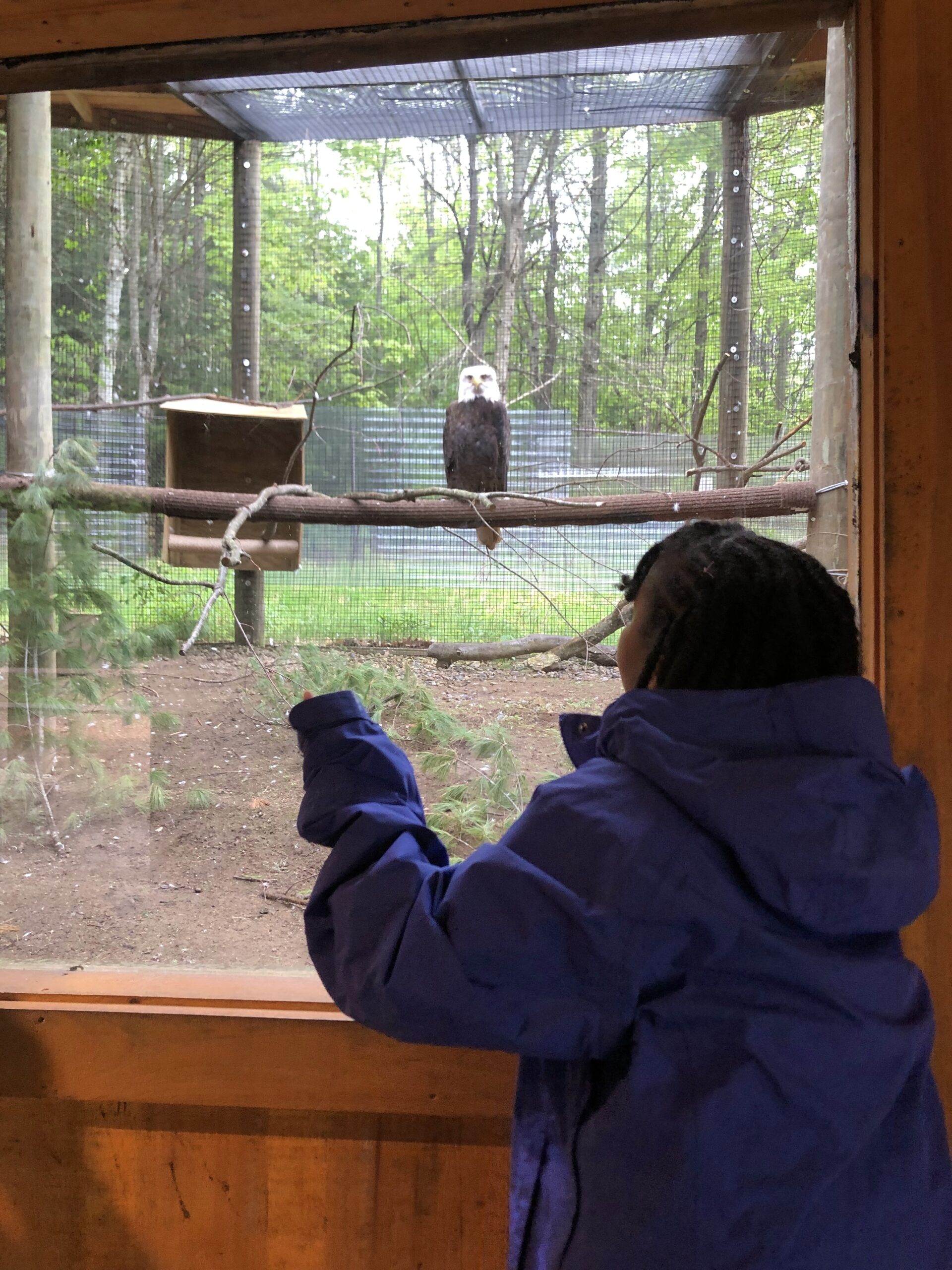
Credit: Amey Bailey, US Forest Service
On a crisp May morning, a group of 45 new Americans from Haiti, Afghanistan, and Ukraine gathered at the base of West Rattlesnake Mountain in New Hampshire’s Lakes Region.
They were participants in Welcome to the Woods, an initiative by the Hubbard Brook Research Foundation (HBRF), home of the Hubbard Brook LTER, and the US Forest Service (USFS) aimed at introducing political refugees to the natural features of their new home.
Previous Welcome to the Woods trips have been within the Hubbard Brook Experimental Forest where participants were introduced to soil, water, and wildlife projects underway within the Hubbard Brook Long Term Ecological Research site.
This outing provided more context for the work happening in the forest.

Credit: Brendan Leonardi, Hubbard Brook Research Foundation
Foundation education leader Brendan Leonardi and US Forest Service technician Amey Bailey started the May 2024 field trip with a guided hike offering breathtaking views of Squam Lake. Children and adults alike explored the summit while Leonardi and Bailey pointed out areas and features of interest.
The day continued at the Squam Lakes Natural Science Center, where participants learned about local wildlife, including bobcats, mountain lions, and bald eagles. All of this alongside language interpreters who served as a bridge between the outreach participants and scientists.
Bailey explains, “The main interpreters work for Rick Menard from Building Community New Hampshire. So really building a rapport with them has been super nice.”
HBRF’s Brendan Leonardi says tours like the one at Squam Lake is one of the ways a Welcome to the Woods field trip offers the “chance to learn about these animals, the environments they live in and threats to their populations in this region.”
One of the keys to the success of these trips expanding the view of the LTER, Amey Bailey says, is the support from the Forest Service Urban Connections grant.
“One of the Forest Services’ initiatives to try and bring people from urban areas into the more rural areas and learn about all the opportunities there,” Bailey says about the program. “Exposing them to the out-of-doors and how it feels to be in the New Hampshire woodlands, it’s been so much fun.
“They love comparing what our landscape looks like next to their landscape.”
The significance of such experiences extends beyond mere recreation.
Studies show that time spent in nature can alleviate stress, reduce symptoms of anxiety and depression, and improve overall mental health—benefits particularly vital for refugees who have faced displacement and resettlement.
Welcome to the Woods was designed to combine those benefits with informal science education about a new place. Knowledge can provide a sense of comfort in unfamiliar surroundings. As participants compare New Hampshire’s natural and cultural landscapes with those of their homelands, Welcome to the Woods offers a way to build new connections and lay down roots in a new place, making each hike a step towards belonging.
For more information on Welcome to the Woods and other initiatives by the Hubbard Brook Research Foundation, email communications@hubbardbrookfoundation.org.
The Hubbard Brook Experimental Forest is one of the longest running and most comprehensive ecosystem study sites in the world. Operated and maintained by the U.S. Department of Agriculture, Forest Service since 1955, this 7,800-acre research site is located just north of Plymouth, NH, in the White Mountains.
by Andrew Cassel, Director of Communications and Science EngagementHubbard Brook Research Foundation










